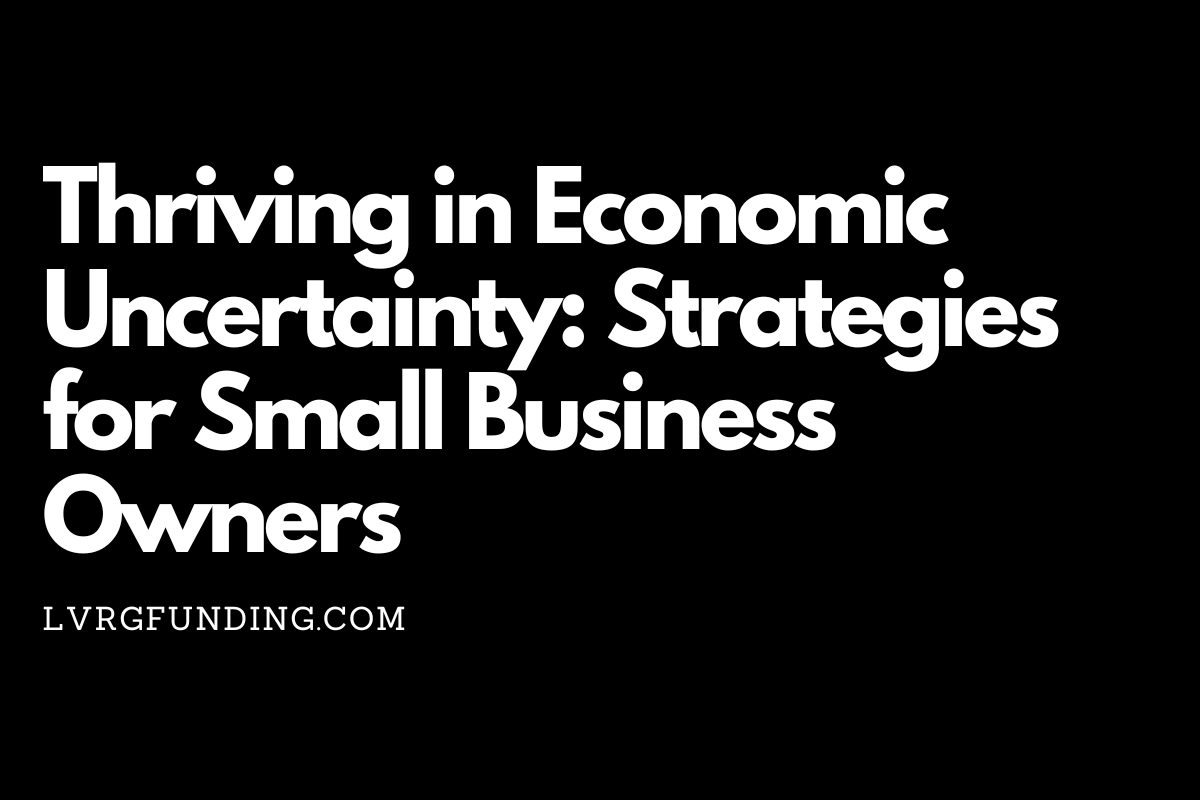Thriving in Economic Uncertainty: Strategies for Small Business Owners
Economic uncertainty is a universal challenge that affects businesses of all sizes. Small business owners, in particular, face a unique set of difficulties, including high costs and fierce competition. However, with the right strategies in place, they can overcome these obstacles and thrive even in times of economic uncertainty. Here are some effective approaches to help small business owners navigate these challenges:
1. Embrace Innovation and Adaptability
In times of economic uncertainty, the ability to innovate and adapt becomes crucial. Small business owners should focus on staying ahead of the curve by identifying emerging industry trends, technologies, and consumer demands. Embracing innovation can often lead to cost savings, as adopting efficient processes and leveraging technology can help streamline operations and minimize expenses. Moreover, staying adaptable allows businesses to pivot and seize new opportunities even when faced with fierce competition.
2. Diversify Revenue Streams
Dependence on a single product, service, or market can leave small businesses vulnerable during economic downturns. Diversifying revenue streams can mitigate risks and help maintain a steady income. Small business owners can achieve this by expanding their product or service offerings, targeting new customer segments, or entering new markets. Additionally, exploring alternative sales channels, such as e-commerce platforms or partnerships with complementary businesses, can provide much-needed resilience in uncertain times.
3. Build Strong Customer Relationships
Creating and nurturing strong relationships with customers is vital for any business, especially during periods of economic uncertainty. Offering exceptional customer service, personalized experiences, and loyalty programs can help small businesses differentiate themselves from the competition and build a loyal customer base. These loyal customers are more likely to continue supporting small businesses, even when facing financial constraints themselves, helping to sustain revenue streams.
4. Implement Cost-Effective Strategies
High costs can cripple small businesses, particularly when combined with fierce competition. Implementing cost-effective strategies is essential to maintain profitability during uncertain times. Small business owners should carefully review and negotiate vendor contracts, optimize their supply chains, and seek cost-saving measures such as bulk purchasing or leasing instead of buying assets outright. Additionally, exploring affordable marketing channels, such as social media or targeted online advertising, can maximize the impact of marketing expenditures.
5. Collaborate and Network
Collaboration with other small businesses can create mutually beneficial opportunities and help overcome high competition. Small business owners can form alliances to share resources, pool marketing efforts, and access new customer bases. Participating in industry associations, networking events, and online communities can also facilitate knowledge sharing, mentorship, and potential partnerships. By working together, small businesses can leverage collective strength and enhance their chances of thriving amidst economic uncertainty.
6. Stay Informed and Seek Support
Remaining informed about economic trends, government policies, and industry insights is crucial for small business owners to anticipate changes and respond accordingly. This information can guide crucial decisions, such as adjusting pricing, identifying new opportunities, or accessing financial assistance programs. Small business owners should also consider seeking support from business consultants, financial advisors, or mentorship programs. These resources can provide valuable guidance, fresh perspectives, and help navigate challenges.
While economic uncertainty inevitably poses challenges, small business owners can adopt effective strategies to overcome high costs and competition. Embracing innovation, diversifying revenue streams, building strong customer relationships, implementing cost-effective strategies, collaborating with others, and staying informed will position small businesses for success even during uncertain times. By remaining resilient and proactive, small business owners can navigate adversity and emerge stronger, securing long-term sustainability for their businesses.
Written by Charles M. Barr, CEO of LVRG Funding

